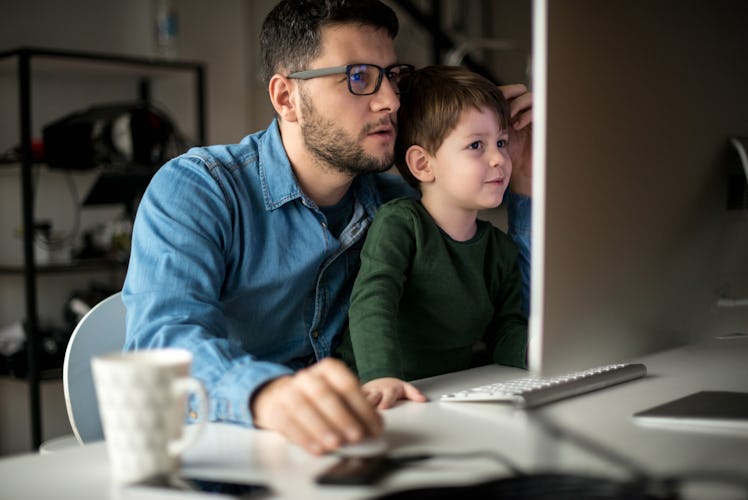How Big A Career Risk Is Too Big When You Have Kids?
Fatherhood can make men less willing to take risks, for the safety of their families. But you still have to be open to taking chances.

Matt Schubert was never someone who thought of himself as risk-averse. Coming from a family of entrepreneurs, risk-taking was not only what he signed up for when he earned an MBA — it was in his blood. But when he became a father, his relationship with risk changed dramatically.
After business school, Schubert started several businesses, including one that chartered fishing trips in California. Although it allowed him to make a lot of money during the fishing season, there was a risk of the overhead it takes to maintain large boats. Then, in August 2020, his boat had a catastrophic engine failure. In the dead of the pandemic, with supply chains backed up, he wouldn't be back in the water until March 2021 — a devastating blow to his savings, on top of the $30,000 it would take to fix the motor.
“This was okay when I was single in my twenties, but it’s not okay anymore,” Schubert says regarding the blowback from a financial risk. “It was a sickening feeling, knowing that you have a kid at home...I needed a change.”
The shift in Schubert’s perception appears to be a pattern backed up by research. Studies show that parents become more risk-averse and generally trust strangers less after having kids. Other data indicates that men and women experience “a considerable increase in risk aversion” starting as early as two years before becoming parents that continues throughout their baby’s early childhood. Likewise, single mothers and fathers have been found to be the most risk-averse when it comes to dangerous career paths — likely because their survival is essential for that of their children.
The expectation of a lower tolerance for risk could even keep some men from pursuing fatherhood. For instance, one man on Reddit went as far as to cite this change as his “biggest fear.” The 27-year-old asked the older men in the group r/Ask Men Over Thirty how marriage and children affected them: “Is there a way you can do these things and still dream bigger?”
One optimistic dad in his forties said that getting married and having children didn’t destroy his ability to dream, and argued the opposite was true.
“You don’t want to take stupid risks when you have kids, but having a partner gives you a lot more leeway,” this user said. He said that he was able to leave his job and train for a better career because he had his wife as backup. He was taking a risk, he added, but in a much different way than he would have been able to do as a single man.
The same was true for Schubert. Sure, he couldn’t take the chances of having another boat break down in the middle of his busy season. But he doesn’t believe that fatherhood compromised his ability to take big swings. Rather, it changed what he was swinging at. In business terms, he describes it as “meeting his floor,” or being able to pay the mortgage, daycare, and other bills, before he can take a big risk.
“The floor was so much lower in my twenties. I could couch surf and eat ramen if things didn’t work out,” Schubert explains.
When he was coming up in business as a bachelor, the willingness to lose it all was almost a flex and a marker of confidence. But if you’re fine with doing that once you have children, this shifts dramatically: “That entrepreneur is a piece-of-shit family man,” he says.
A few months after his boating breakdown, with one young child and another on the way, Schubert decided to enroll in graduate school yet again to become a licensed professional counselor, specializing in cognitive behavioral therapy for parents who are struggling to tolerate risk. He now uses his entrepreneurial background to run his own telehealth practice, a business that allows him flexibility in parenting his 2- and 4-year-old.
Schubert encourages parents to hang onto the part of themselves that can stomach risk after having children, in order to teach their kids how to do the same thing one day.
“I want to model that behavior,” he says. “I don’t want my kids to live in fear. I want them to grab life by the balls.”
This article was originally published on